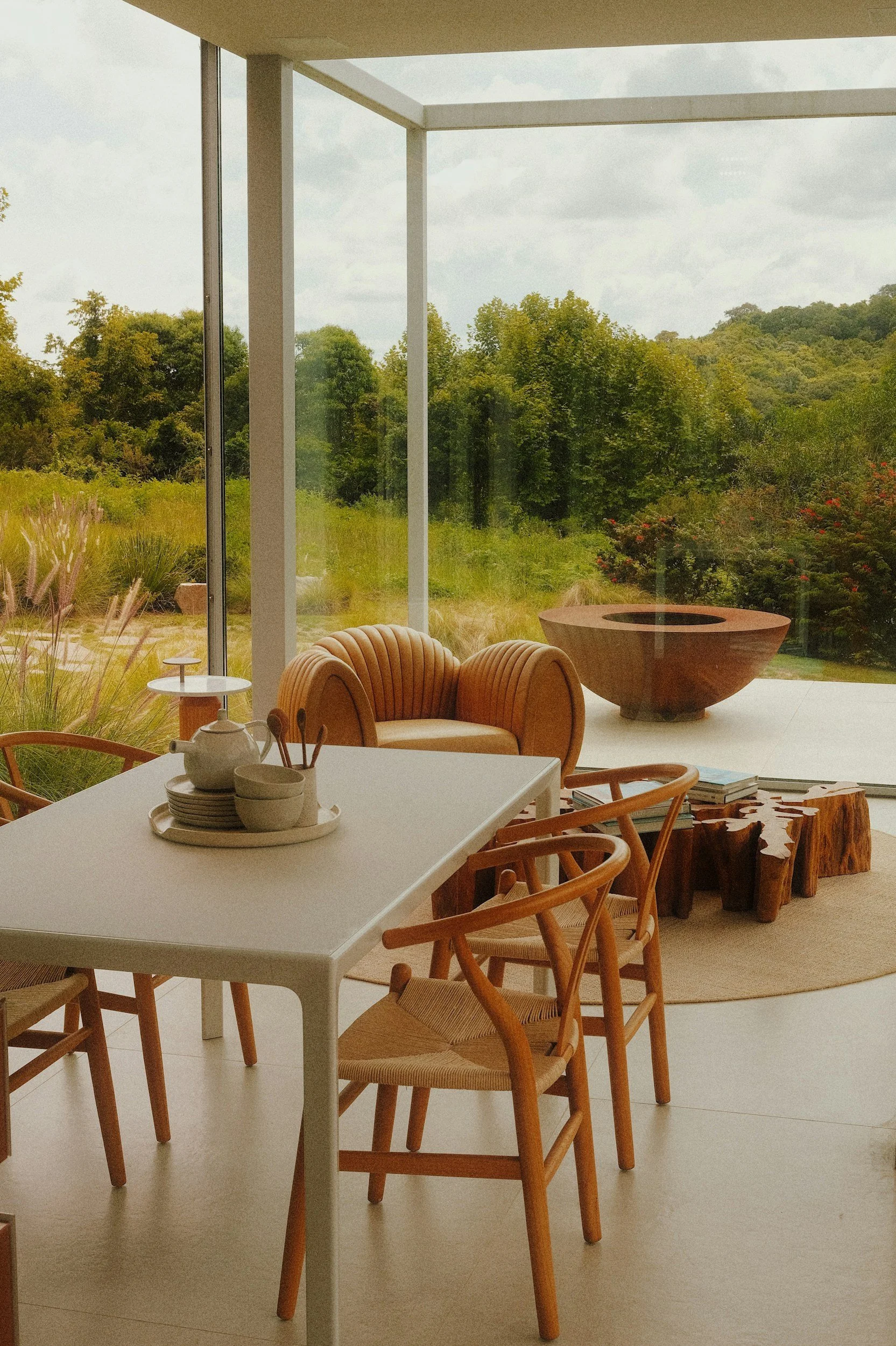Dismantling the Lawn and Rewilding Our Homes
Decolonize Your Yard
For decades, the suburban lawn has been seen as a symbol of success a pristine green carpet that signals order, ownership, and assimilation. But when we dig deeper (sometimes literally), lawns reveal something else: a colonial legacy of land control, environmental harm, and ecological erasure.
We believe in rooting our homes in the rhythms of the land, not controlling it. That begins with how we think about our yards.
The Problem with Lawns
They’re thirsty. Lawns require massive amounts of water, often in regions already facing drought.
They’re hungry. Fertilizers and pesticides pollute waterways and disrupt soil life.
They’re silent. A monoculture of grass supports little to no biodiversity, no bees, no butterflies, no birdsong.
They’re historical. The rise of the lawn in North America was shaped by European aristocratic ideals, transplanted onto Indigenous land to reflect colonial values of control, taming, and status.
Rewilding Is a Resistance
To decolonize your yard is to shift from domination to relationship. It’s a way of remembering that land is not property to be tamed, but an ecosystem to be in conversation with.
Imagine your yard not as something to mow, but something to grow with native grasses swaying in the breeze, flowering perennials feeding the pollinators, and medicinal herbs thriving where turf once sprawled.
The Case for Native and Edible Plantings
Native and edible gardens do more than just look beautiful they repair, nourish, and regenerate.
Biodiversity Boost: Native plants support local insect and bird life, creating resilient mini-ecosystems right in your yard.
Microclimate Magic: Dense, diverse plantings cool your space, retain soil moisture, and reduce the urban heat island effect.
Edible Abundance: Imagine walking outside and harvesting mint for tea, amaranth for dinner, or turmeric for healing salves.
Pest Balance: Natural habitats attract beneficial insects that keep pests in check, reducing the need for chemical intervention.
Soil Regeneration: Deep-rooted natives break up compacted soil and build healthy, carbon-sequestering ground beneath your feet.
A New Vision for Urban and Suburban Spaces
Decolonizing your yard is about more than just plants—it’s a return to intimacy with place. It’s an invitation to live with the land, not just on it.
As cities heat up, water grows scarce, and species vanish, every yard matters. Yours can be a haven of resistance, resilience, and regeneration.
A Grounded Approach to Design
At OTO Design, our philosophy is rooted in relationship between people, place, and planet. When we design homes, we consider not just the structure but its integration with the site: how the wind moves through it, how the sun hits it, what the land remembers.
Your yard is not an afterthought. It’s part of the architecture of your daily life.




